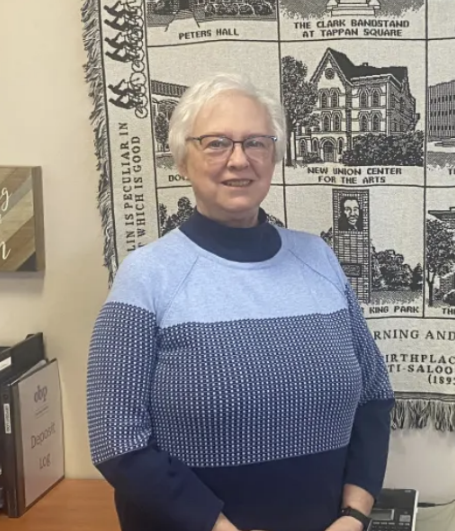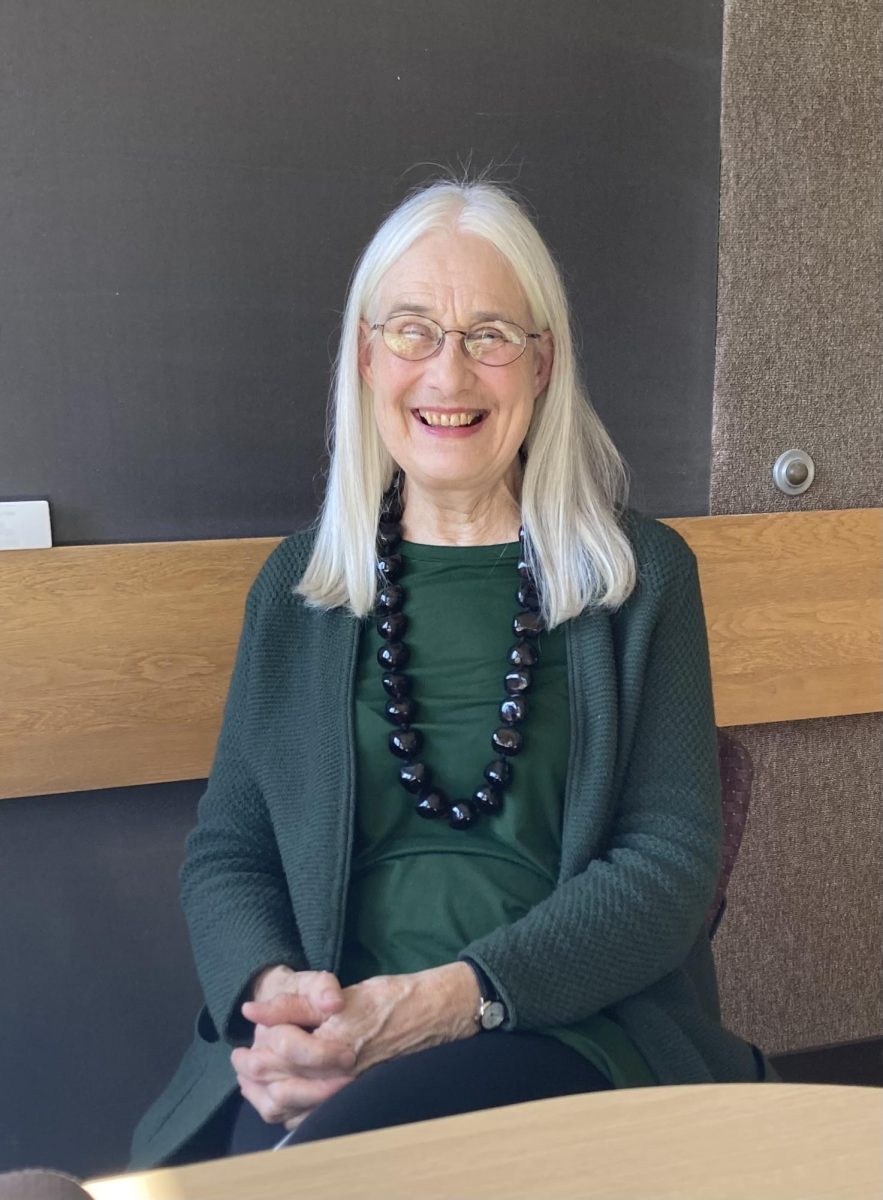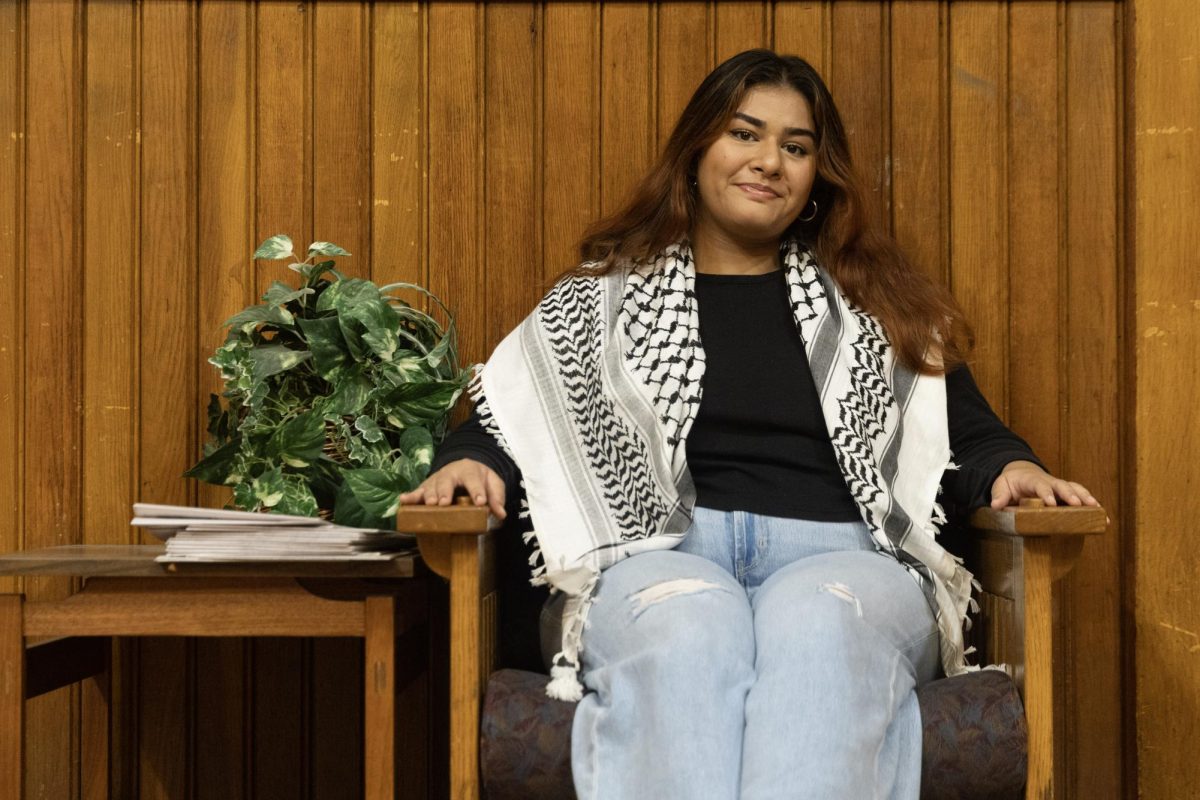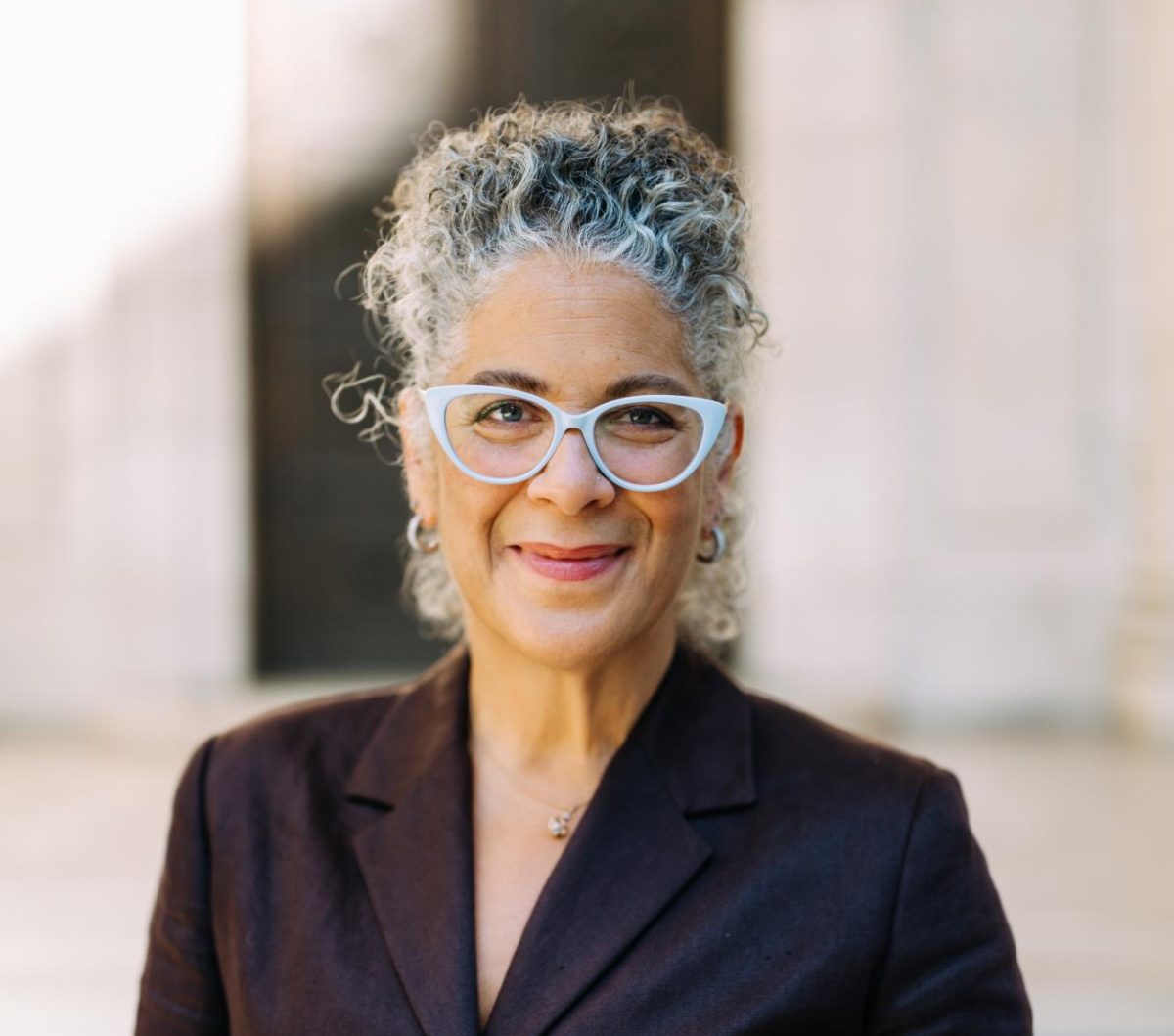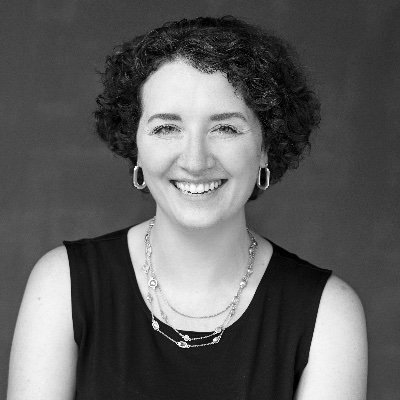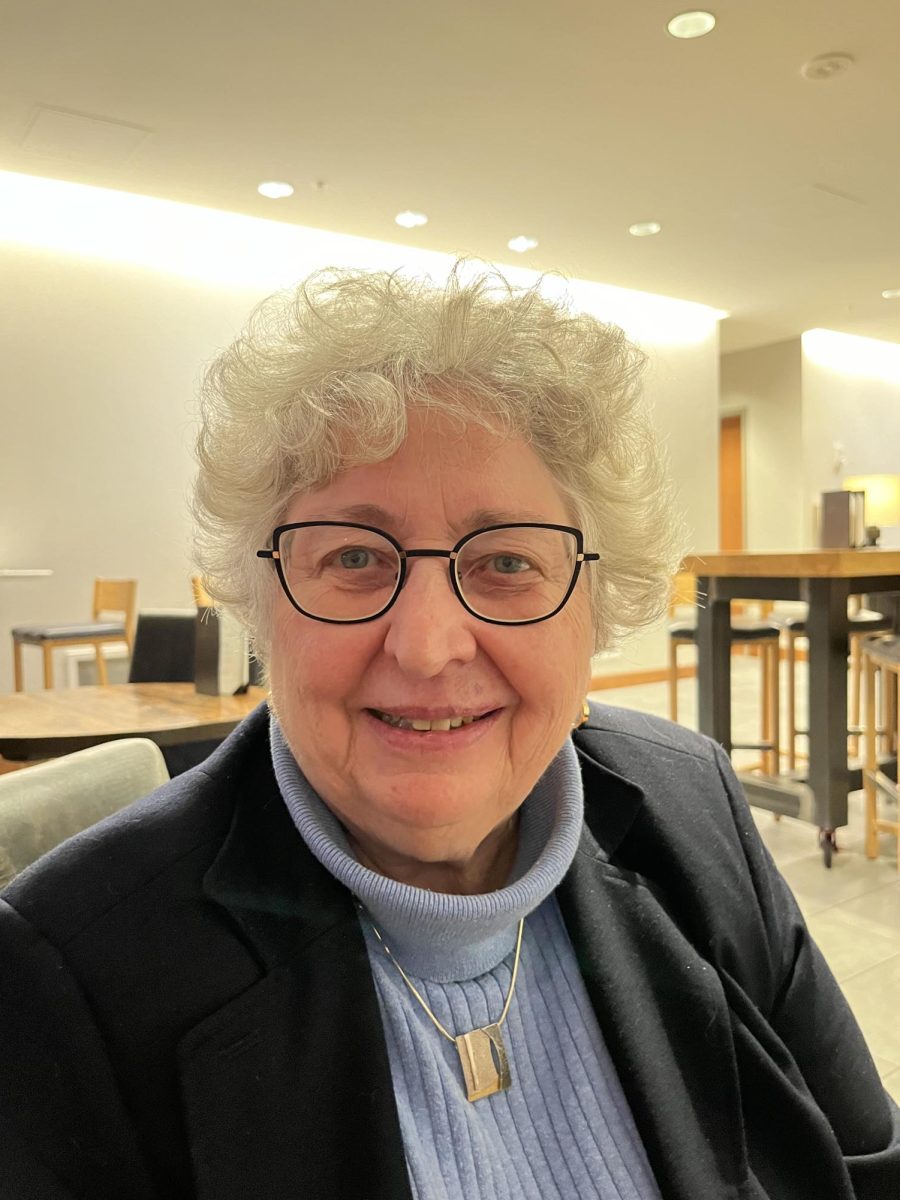Janet Haar is the former executive director of the Oberlin Business Partnership, a post she held from 2012 until her retirement on Dec. 31, 2023. During her time there, she worked with businesses in Oberlin to improve their operations and attract new businesses to open in the town. She is also a current member of the Oberlin Community Improvement Corporation.
This interview has been edited for length and clarity.
Why did you join Oberlin Business Partnership?
I decided to come to Oberlin because my son, who is the men’s soccer coach at Oberlin College, called me one day. He knew that I had actually left my job at the Greater Cleveland Growth Association, which was Cleveland’s Chamber of Commerce. I had to go out on my own. And I was doing strategic marketing for small businesses. My mother had just passed away, so he knew that I was kind of looking for something. He called, and he said, “Mom, I think you know it would be great if you could come to Oberlin.”
I interviewed for the job of executive director in 2010. Because the Chamber of Commerce in Oberlin and the Main Street Organization in Oberlin had just merged into one organization, and they were looking for a new director. So I interviewed in 2010, just fresh off of my stint with the United States Census where I, at that time, managed 1,200 people. I thought I had the job, but I didn’t; they hired someone else. That person lasted about 16 months, and then they called me back and I went in to interview again. They hired me in May of 2012.
Can you tell me about your work with the Oberlin Business Partnership and how it impacted the community at large?
When the two organizations — the Chamber of Commerce and the Main Street Organization — joined together, they did so because they had determined that Oberlin was too small a community to have two distinct organizations. When I came on board, the Board of Trustees at that time said they wanted me to help them figure out what their vision and mission was going forward. The Board did some strategic planning in the fall of 2012. And what came out of that planning was the Oberlin Business Partnership — business because they were mostly businesspeople that were on the board, and partnership because they realized we couldn’t really get anything done in the community without being a partner. The Board understood that Oberlin had silos; there was the city, there was the college, and there were businesses. Our job was to be the organization that put those together and made them collaborate. I think what we have been able to do is we have been able to collaborate with the different silos and pull together people from the different organizations in town to look at what Oberlin needs, and what the small businesses that make up a big part of Oberlin need, in order to survive. I believe that the best thing that we’ve been able to do is collaborate and represent our mission to strengthen, support, and promote economic vitality.
Can you tell me about how Oberlin’s businesses have fared over the years of your time with OBP into today?
I think OBP has really helped the town and the people in the town understand the micro-businesses, which we have many of, especially in our downtown, and the freelance businesses, and the businesses that do not have brick-and-mortar storefronts. I believe that we help them survive and help them grow, because we help them understand promotion and marketing. We also help them understand how to run their business, and how to be engaged with the Small Business Development Center, which has a lot of programs for them so that they can learn how to operate their businesses more efficiently and effectively.
During 2020, we were out there finding every possible way to help these businesses because many of them couldn’t be open. So, how are they going to make a living? And how could they change their business model from strictly, “You come into my store, or you come into my restaurant,” to “I’m going to deliver things to you curbside, or I’m going to deliver to you in the community.” We helped the community understand how important it was to continue to support those doors in any way possible. During 2020 and 2021, we actually sold over $53,000 worth of Oberlin gift certificates to support those businesses. So we just kept trying to do what was necessary to help support and strengthen their businesses.
How did you come to the decision to retire from OBP, and what will the organization look like now?
I came to that decision because I had my 77th birthday. And my family had for years been saying, “When are you going to retire?” and I’m saying, “When I stop having fun.” And even though so much of my interactions were fun, I also thought, it is time for someone who is younger, and who hasn’t been through some of the things that our organization had been through in the last several years, to take the reins. I told my most recent board presidents that it’s time for somebody, maybe with a little bit more energy, and they just laughed at me because they said, “Nobody has more energy than you do.” But I just thought it was time. We had a really good seated Board of Trustees at this time, and I knew that they would have the best interest of the city, the businesses, and the organization at heart. It was a good time to leave it in good hands of the Board of Trustees.
If you are an executive director or someone who is the face of an organization, many people begin to look at you as being the organization. But I’m hoping what people will understand going forward is that the people who are in charge of that organization now — and who are trying to strengthen it, and sure its sustainable— are also people that they can trust and that have their best interests at heart. The people who are engaged in the organization now only want what’s best for the organization and the community.


